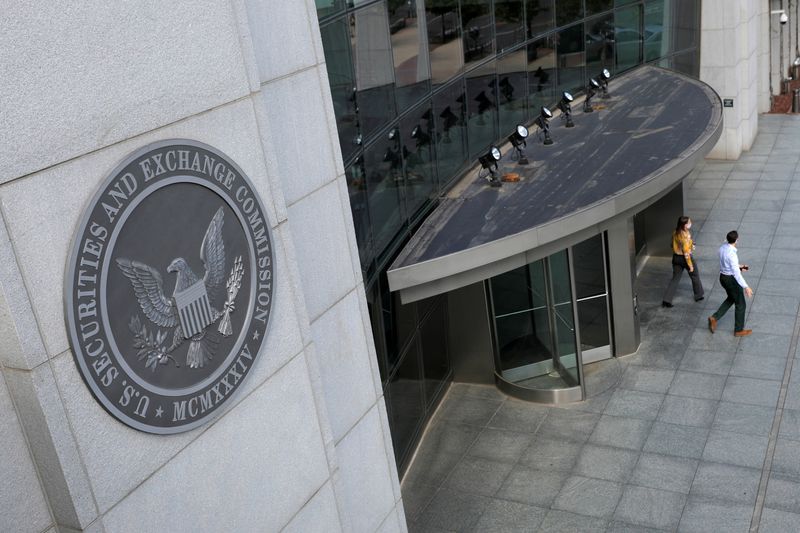By Katanga Johnson
WASHINGTON (Reuters) -The top U.S. corporate lobby group filed a lawsuit on Thursday against Wall Street's regulator over the agency's recent vote to rescind rules that critics said impeded the independence of firms that advise investors on how to vote in corporate elections.
The move by the U.S. Chamber of Commerce, in addition to the Washington, D.C.-based Business Roundtable and the Tennessee Chamber of Commerce & Industry, claims the Securities and Exchange Commission (SEC) failed to "follow proper procedures or provide adequate justification for its decision to roll back the 2020 Proxy Advisor Rule before it was allowed to take effect."
The move by the SEC earlier this month was the latest in a long-running battle over how to regulate proxy advisers like Institutional Shareholder Services and Glass Lewis, which advise investors how to cast their ballot on issues including the election of directors, merger transactions and shareholder proposals.
Corporations have said the advisory companies have amassed too much sway over corporate elections and should be more tightly regulated.
"The 2020 Proxy Advisor Rule was put in place to protect investors and to boost the competitiveness of the U.S. public capital markets," said Suzanne Clark, the President and CEO of the Chamber of Commerce.
"However, the SEC's recent actions will deteriorate the public company model, ultimately depriving main street investors and everyday Americans dynamic growth opportunities to help build wealth and save for retirement."
The agency's recent rules specifically rescind two exemptions, introduced under former President Donald Trump, including a requirement that proxy advisers provide a first look to corporations of the advice to be placed on the agenda. It also removed a requirement that allowed clients of proxy firms to be notified of any written responses to their advice from companies.
The Wall Street regulator, whose composition has changed under President Joe Biden, first proposed these rule changes in November and said investors had expressed concerns that the conditions created increased compliance costs for proxy advisers and impaired the independence and timeliness of their advice.
The SEC declined to comment.

Wednesday's lawsuit is the latest in a flurry of such legal challenges filed by industry groups.
The National Association of Manufacturers and The Natural Gas Services Group Inc filed a suit contesting the changes earlier this month.